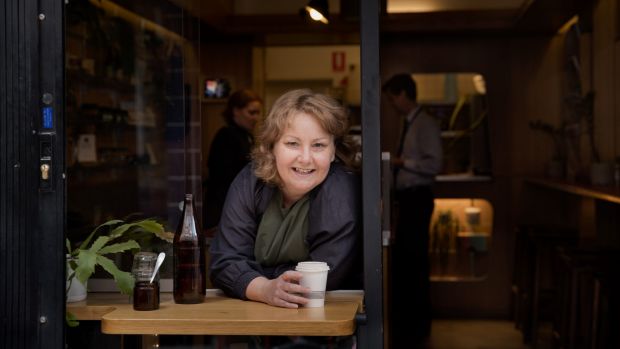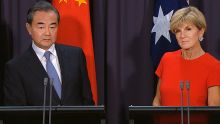It's the difference between being stuck or being able to escape when society and politicians have let you down.
High-income earners are half as likely as low-income earners to think that the world is changing too often and too fast, and low-income earners are twice as likely to feel let down by society, according to new research from the Political Persona Project.
More National News Videos
What kind of Australian are you?
We asked thousands of people across Australia hundreds of questions, and used the answers to look for patterns. It turns out we are a divided bunch.
Commissioned by Fairfax Media and done in conjunction with the ANU's Social Research Centre and political research company Kieskompas, the project is one of the most comprehensive attempts to profile different types of Australians based on their lifestyles, social values and politics.
The results of an ANU survey of 2600 Australians, undertaken as part of the project, revealed an Australia divided into "haves" and "have-nots" by income, education and age.
Rachel Katterl, 31, is one of the "haves". The senior health policy analyst has a postgraduate degree, a room in a house near Bronte beach and a pay packet of nearly $100,000 a year.
Ms Katterl, who describes herself as "left-leaning", says she is disillusioned with politics in Australia - a view shared by 75 per cent of Australians, according to research from the project.
But unlike many less privileged Australians, Ms Katterl is able to retreat into her own world and find cause for optimism when the broader political and economic situation turns sour.
"I think [Australian politics] is pretty dire … Watching all of it play out just increases my desire to reinforce my own bubble," she said. "I have knowingly changed my frame of reference, what I'm thinking about day-to-day, to become narrower, to focus on my immediate life.

"Now I tend to think about that, instead of the world more broadly, because I know I'm really privileged and really lucky, and I need to take stock of that and focus on the things I can control ... rather than get upset about these macro events."
Being wealthy and in control
Low-income Australians - those earning between $15,600 and $52,000 - were twice as likely to say they felt let down by society, with 36 per cent feeling this way compared to 17 per cent of those on high incomes of $91,000 or more.

They were also nearly twice as likely to agree or strongly agree with the statement "everything is changing too often and too fast". Nearly 50 per cent of low-income earners fell into this group, compared with just 26 per cent of high-income earners, according to the survey.
"Richer people are able to adapt because they have the means to do so," said Ariadne Vromen, Professor of Political Sociology at the University of Sydney.

"They've got disposable income, they can buy new technology when they need to, they can even buy more education and training when they need. And they're the people who are behind a lot of social and economic change as the leaders of society, as well."
It comes down to a sense of feeling in control, with those who have more economic security enjoying greater control of their futures, Professor Vromen said.
In Melbourne, architect and consultant Helen Day, 47, said she felt "very positive" and believed Australia's population growth presented countless opportunities.
"There's just more potential for people to create a livelihood out of their passions and their true interests, whether that be a niche service, a new product or a specialisation if you're an academic," said Ms Day, who holds a masters degree from the London School of Economics, lives in the inner city suburb of Clifton Hill and earns more than $90,000 a year.
"Overall I'm positive but I do note that with any growth of a city there are issues around social disparity and violence. With the good, there will always come bad."
The young and the pessimistic
The same dynamic of control plays out across differences in age and education, with younger Australians and those with university educations much more likely to feel comfortable with change.
For example, 52 per cent of Australians whose highest level of education was high school felt everything was changing too fast and too often, compared with only 27 per cent of university-educated Australians.
Ms Katterl, who has a Masters degree, is among those advocating for greater change.
"Australia is moving way too slowly, particularly on same sex marriage. It's a little bit ridiculous - we've been discussing it for such a long time," Ms Katterl said.
"Even the discussion around climate change. Fifteen years ago when I was still living in North Queensland, I remember campaigning to save the Great Barrier Reef … I am amazed that we haven't moved forward on that debate at all."
However, the research also found young adults were the most pessimistic of any age group, bucking a long-term trend in previous studies. Nearly 45 per cent of 18 to 24-year-olds agreed or strongly agreed with the statement "I feel let down by society", compared with 25 per cent of people aged 55 and older, according to the ANU survey.
Only 49 per cent disagreed or strongly disagreed with the statement "I sometimes feel the future holds nothing for me", compared with more than 70 per cent of people aged 65 and older.
Professor Vromen said pessimism among young people was rising both in Australia and globally.
"Younger people usually tend to be more optimistic … [But] in some ways the sentiments in this survey are a realistic reaction to growing inequality, housing unaffordability, job insecurity and so on," she said.
The educated, the poor and the altruistic
On the other hand, young people were the least likely of any age group to support offshore processing of asylum seekers, the survey showed. Just under 35 per cent of 18 to 24-year-olds agreed or strongly agreed with the statement "offshore processing of asylum seekers should continue", compared with 65 per cent of people aged 65 and older.
"With young people, we tend to find they worry about the world at large and how politics affects people other than them," said Jill Sheppard, a researcher and lecturer in politics and international relations at ANU involved in the project.
"Across the Western world, young people have much more progressive social attitudes, and part of that is that they weren't brought up to worry about their hip pocket first. They're the kids of the people who were around during the civil rights movements, the women's liberation movement, and often they're even more liberal than their parents."
The only group more likely to oppose than support the continuation of offshore processing were those with university degrees, with 47 per cent opposed and 41 per cent in favour, according to the ANU research.
"The more well-educated people are, the more likely they are to prefer positions that benefit society at large," Dr Sheppard said.
"It comes from a 'hierarchy of needs' approach - the better you're able to support yourself, the better you're able to look after 'higher order' needs, such as those of asylum seekers or other marginalised groups."
However, the survey also found lower-income earners were more likely to oppose offshore processing of asylum seekers than high-income earners, with 41 per cent disagreeing or strongly disagreeing with the policy, compared to 35 per cent of high-income earners.
Dr Sheppard said this may reflect "a fairly well-documented phenomenon ... that people on low incomes tend to be more compassionate and altruistic".
The city versus the bush
When it came to the divide between the city and bush, the treatment of people living outside our cities elicited one of the largest differences in opinion. Seventy-six per cent of Australians living outside a capital city agreed or strongly agreed with the statement "politicians ignore people in rural and regional areas", compared with 57 per cent of people in capital cities.
Darryl Coventry, 49, who lives in Albury's working class suburb of Lavington, thinks people in Sydney and Melbourne do not realise the wealth disparity existing in regional Australia, and that politicians are just as city-centric.
A former policeman who spent much of his career in rural Queensland, Coventry now delivers parcels and gets a pension but is struggling to find consistent work, having moved to be closer to his two young children who live with their mother.
"I wouldn't want to be anywhere else, I'd just like to be a bit better off," he said. "But people don't know that once you go out of the big cities to Lavington there's not a lot of people at work, there's a lot of arguments and even street violence."
"I'm getting sick of the elitism that is everywhere," he said. "I think Australia needs to work out what it's good at and start learning how to make it, because there's so much talent here," he said.
The research also showed that people in regional areas were more likely to feel pessimistic about the future, with 29 per cent agreeing or strongly agreeing with the statement "I sometimes feel that the future holds nothing for me", compared with 23 per cent in capital cities.
"People outside the cities are much further away from the centre of power, from the decision-makers. It's probably not a surprise that people in regional and rural areas feel left behind or not understood," Professor Vromen said.
However, she pointed out that the attitudinal rift between the capital cities and regions was far less stark than between rich and poor, young and old, and higher and lower levels of education.
"Between cities and rural areas, there were very few issues where people felt very differently," she said.
with Derrick Krusche and Bhakthi Puvanenthiran

















